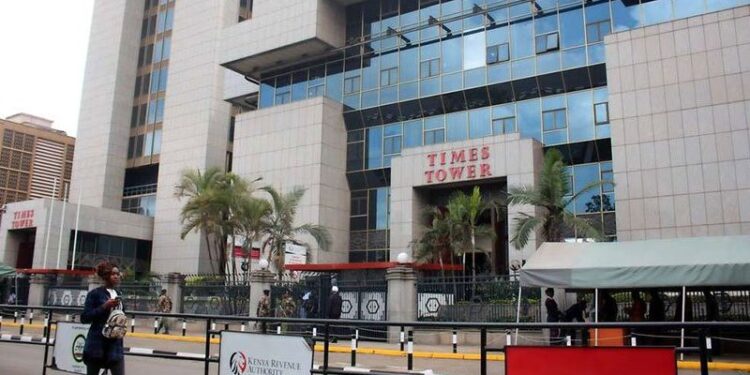The Kenya Revenue Authority (KRA) has unveiled an ambitious transformation agenda aimed at positioning the Authority as a premier, service-driven, and technology-first revenue agency. Speaking during the 30-year anniversary celebrations held today at Times Tower, Nairobi, Commissioner General Humphrey Wattanga outlined plans to expand digital services, simplify tax compliance, and finalize the Authority’s restructuring to strengthen revenue mobilization.
Since its establishment in 1995, KRA has undergone a remarkable evolution from manual tax collection to becoming one of Africa’s leading digital tax administrations. Annual revenue collections have grown exponentially—from KSh 122.1 billion in the mid-90s to KSh 1.069 trillion in the 2014/15 fiscal year. By 2021/22, collections more than doubled to KSh 2.031 trillion, despite economic disruptions caused by the COVID-19 pandemic. In the current fiscal year, KRA has already surpassed KSh 2.5 trillion, with the 2024/25 financial year recording a new milestone of KSh 2.571 trillion, representing a 6.8% year-on-year growth.
“Our journey to modernization has been transformative,” said Mr. Wattanga. “From the days of long queues, manual forms, and unofficial ‘agents,’ we’ve now embraced a strategic vision focused on tax simplification, technology-driven compliance, and tax base expansion.”
KRA is scaling up its digital innovations to improve efficiency and taxpayer experience. Among its flagship projects is GavaConnect, an enterprise Application Programming Interface (API) platform developed in collaboration with Kenyan tech innovators. Leveraging artificial intelligence, machine learning, and data analytics, GavaConnect integrates tax compliance seamlessly into everyday life and business operations.
Additionally, the rollout of eTIMS (Electronic Tax Invoice Management System) has revolutionized invoicing and VAT reporting, while predictive analytics tools are enabling KRA to forecast revenue more accurately and strengthen risk profiling.
“Technology is at the heart of KRA’s future,” Mr. Wattanga emphasized. “By using digital ecosystems and AI-powered insights, we are redefining tax administration to make compliance simpler, faster, and more convenient.”
Cabinet Secretary for National Treasury and Economic Planning, Hon. John Mbadi, reaffirmed the government’s commitment to enhancing KRA’s operational capacity.
“We are working closely with the KRA Board and management to allocate additional funding that will enhance KRA’s ability to mobilize revenue sustainably,” said CS Mbadi. “These investments are critical to supporting Kenya’s development goals and securing fiscal stability.”
KRA’s Board Chairman, Hon. Ndiritu Muriithi, praised taxpayers, development partners, and KRA staff for their role in driving the Authority’s success over three decades.
“This milestone is a testament to collective effort,” Mr. Muriithi noted. “Our progress reflects the dedication of our employees, the compliance of Kenyan taxpayers, and partnerships both locally and internationally.”
KRA’s ongoing transformation aligns with the OECD’s Tax Administration 3.0 framework, which envisions a taxpayer-centric ecosystem where compliance is embedded seamlessly into business and personal transactions. By integrating smart APIs, mobile platforms, and predictive analytics, KRA aims to reduce paperwork, improve transparency, and enhance user experience for individuals and businesses alike.
As KRA enters its fourth decade, the Authority is setting its sights on becoming one of the most efficient digital tax administrations in Africa while supporting Kenya’s economic resilience and growth.
“This journey is not just about collecting taxes,” Mr. Wattanga concluded. “It’s about enabling prosperity by making compliance effortless, improving service delivery, and powering Kenya’s development.”
Key Highlights:
- KRA marks 30 years since its establishment in 1995.
- Revenue growth: KSh 122B (1995) → KSh 2.571T (2024/25).
- Digital-first strategy anchored on AI, APIs, and predictive analytics.
- Launch of GavaConnect and expansion of eTIMS to simplify compliance.
- Strategic alignment with the OECD’s Tax Administration 3.0 model.
- Government commits to increased funding to support KRA’s modernization.





